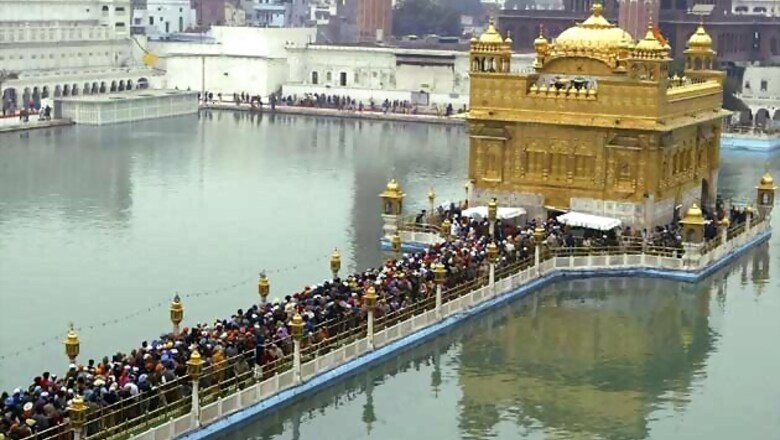
views
It was May 1989. I was sitting in the drawing room of one of the sprawling bungalows on Sansad Marg, New Delhi. At the home of my father's mentor and family relative, a Sikh, a serving Major General (name withheld). When the news on the television ended, the General turned to his guest, a Colonel, and said, 'Today the police of a state has defeated the army of a nation.'
The comment has stayed with me. The reason it has stayed is because it was followed by silence. Neither the Colonel, nor the General said anything more. After some time, the Colonel left and a sixteen-year-old me wondered what the General could have meant. The more I see of Punjab over the last three decades, try to measure the human cost of the Operation, the more the meaning of that remark reveals itself to me. Quite literally, the General meant that where the Indian Army had failed with Operation Blue Star in June 1984, the Punjab Police had succeeded with Operation Black Thunder.
What did the General mean by defeat? For a state, its mightiest force is its army. Through history, in all civilizations, temples have been the centers of culture while courts have been the centers of politics. That is why in olden days invaders would attack temples, loot them and plunder them. Modern societies, democracies, changed that equation. While states arranged themselves as democracies, temples became centers of faith. The grossly untimely Operation Blue Star, the day it started there were hundreds of thousands innocent pilgrims at the Temple gathered for Guru Arjan Dev's martyrdom day, sprung solely from the ego of one leader. It was a grave religious sacrilege, a huge political disaster and it unleashed a mayhem which shook the very foundation of a democratic system.
Democracies are based on a system of 'social contract' between citizens and a state. This social contract implies the citizens elect their government and expect the government to take care of their safety and well being. When a nation state attacks the sanctum sanctorum of its community, it hits the community's centre of faith. Whatever is the intent, the message that goes out is: the state is against the religion. When Blue Star is backed by another Operation Woodrose in which hundreds of Gurdwaras in the state are raided and innocents captured and killed, the message becomes even louder. These events and the November pogrom brought about a change in the way the majority Sikhs, the moderates, now viewed the idea of Khalistan. That was one of the defeats the General was talking about - that the Sikhs' belief in the Indian state will start eroding.
After Operation Black Thunder the Punjab Police became a force unto itself. After all, they had proven themselves to be superior to the might of the Indian state - the army. They became a law unto themselves. The number of encounter killings and disappearances spiraled out of control. The nation state did not have the teeth to rein in a rogue police force. This is what the General meant by defeat.
The political processes in the state over the last two decades have not sorted out any of the reasons why the separatist demand arose in the first place: Anandpur Sahib Resolution which asked for a federal structure of governance, not sharing of capital city Chandigarh with Haryana, water issues between the Northern states, jobs and industrial growth and so on. The politicians have remained myopic in their vision for the state and practiced a subsidy based appeasement system which has severely impoverished the food bowl of India. For years the General, who now lives in Punjab, has been fighting court cases to save his home and agricultural land from being grabbed by land sharks. Disgusted with how the education department was behaving, his wife, a school teacher, quit teaching before she retired. Perhaps this is also what the General meant by defeat.
 Thirty years ago, this day (June 3, 1984) Indian Army entered the holiest place for the Sikhs, the Golden Temple in Amritsar to flush out militants led by Sant Jarnail Singh Bhindranwale. This incident changed the history of India forever. Amandeep Sandhu, who went to school in Punjab during the height of unrest, writes about the deep scars 'operation blue star' left on the Sikh psyche. He is the author of Roll of Honour, a fiction based on the events of 1984.
Thirty years ago, this day (June 3, 1984) Indian Army entered the holiest place for the Sikhs, the Golden Temple in Amritsar to flush out militants led by Sant Jarnail Singh Bhindranwale. This incident changed the history of India forever. Amandeep Sandhu, who went to school in Punjab during the height of unrest, writes about the deep scars 'operation blue star' left on the Sikh psyche. He is the author of Roll of Honour, a fiction based on the events of 1984.













Comments
0 comment